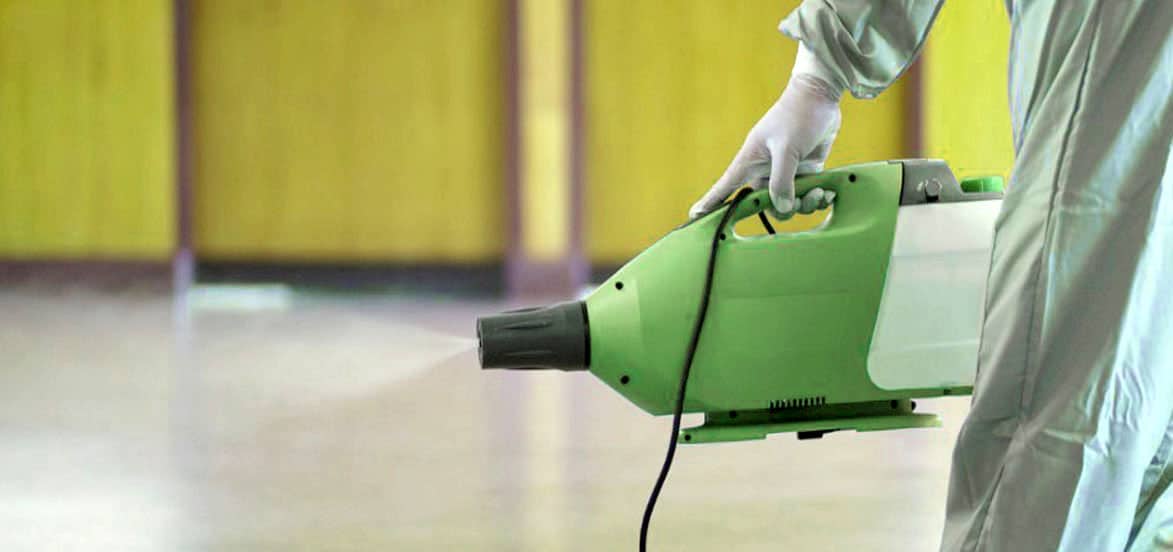How to Remove Odor Of Water Damage From Home?
After a tragedy like a house fire, flood, or mold infestation, the best solution is to seek help from a professional team. Professional of Water Damage Restoration Los Angeles can deliver solutions that will ultimately deal with the situation so that your home can be safe for you and your loved ones to live in again. Unfortunately, the problem can persist and even worsen without adequately understanding the hidden issues associated with water damage.
The secondary cases (a musty smell after a water leak or dark spots on the floor, etc.) are the signifiers of potential water damage. You may not know that water has been leaking into your basement or under your sink until your wood floors begin to smell musty. So, what does water damage smell like, and how do you know if you have water damage?
Everyone has experienced water damage at some point in their home. It is the most common type of property damage and nearly impossible to prevent because it can come from many sources. Excess water damage causes problems in homes by getting absorbed into various materials where it can cause water damage and mold growth.
The carpeting is especially vulnerable to water damage because the water gets soaked into the carpet and may even get trapped under the carpeting or padding. Trapped moisture under your carpet will lead to further damage and produce a musty smell in your highly unpleasant home.
Mold and mildew tend to grow in confined, moist spaces, and any mildew growth under your carpet can result in foul odors. Rely on professional water damage repair and restoration services to bring your property back to normal.
Reasons Of Foul Odors
Mold
Mold is a living organism that belongs to the kingdom of Fungi. Fungi are unique in that although some appear plant-like, they are neither plant nor animal. Mold is heterotrophic, meaning it cannot make its food as plants do. Mold must gain nutrients from other organic substances.
Mildew
The term mildew is often used to refer to mold growth, usually with a flat growth habit. Molds can thrive on many organic materials, including clothing, leather, paper, and the ceilings, walls, and floors of homes or offices with poor moisture control. You can clean mildew using specialized mildew remover or substances such as bleach (though they may discolor the surface).
Musty Smell
“Musty” conjures associations like winter sweaters packed away for months or an attic that needs to be aired. The word describes odors that suggest the presence of mold. Musty is likely a variant of “moisty” or “moist.”
Water damage can happen because of a leaky roof, broken pipe, or the aftermath of a fire. No matter the cause, water damage can fill your home with an unpleasant odor. The unpleasant odor caused by the water damage can last for weeks and even months after the initial incident.
Fortunately, several inexpensive all-natural remedies or assistance of emergency water damage repair professionals can remove the smell without using harsh chemicals.
Identify The Source Of Molds & Mildews
One of the first indicators of mold or a persistent leak is that your house will smell musty after water damage. It might sense like something old, rotten, or stale and usually comes from dark, damp, and warm areas. Crawl spaces under the sink, bathroom, attic, and basement are all common areas for water damage. The unfortunate thing about mold is that it thrives on porous materials that hold moisture, such as wood, drywall, carpet, cement, and sheetrock.
Once you find the area where the water is coming from, whether it be a leaking pipe, appliance, roof, crack in the foundation, sewage backup, or melting snow, it’s time to contact the water damage repair professionals to remove the water and dry the area.
Tips To Remove Musty Odor Of Water Damage
Mold & Mildew Odors
- Check the damp places throughout your home that could support mold growth.
- If the affected area is less than 10 square feet, you can clean it yourself by scrubbing the surface with household detergent and water.
- Please don’t use bleach, as it only kills live mold, but not mold spores, leading to faster mold growth.
- Contact a professional mold remediation company for areas more significant than 10 square feet.
- The best things to use are dehumidifiers, air-moving machines, and fans to dry an area. If the problem is significant in scale, it’s best to hire an emergency water damage restoration company that can provide industrial-strength devices and has mold removal experience.
Also Read: Steps One Should Take After Water Damage In Their Home
SMELLS FROM THE CARPET
Before removing the musty smell from your carpet, you must deal with the water damage and any possible mold or mildew issue. You should call our water damage restoration professionals if you discover a mold problem when inspecting your carpet. After taking care of the water damage source and any mold problems, you can remove or prevent musty smells in your carpet with these tips:
- Thoroughly Dry The Carpet: Using dehumidifiers and floor fans will help remove moisture to speed up the drying of the carpet. You can also open your windows to bring in fresh air if the weather allows.
- Use A Cleaning Solution On Affected Areas: Create a solution composed of one cup of vinegar and 2 cups of warm water and put it in a spray bottle. Spray the areas of the carpet where the smell is the strongest. Be careful not to spray the rug too heavily because the moisture may cause further mold growth.
- Sprinkle Baking Soda Over Affected Areas: Baking soda absorbs odors and excess moisture. Sprinkle baking soda over the most affected areas and let it sit overnight to absorb as much water and odor as possible. You can vacuum the baking soda the next day.
There is a chance that the mildew smell from your carpet can affect the air space in your home. If the smell persists after treating your carpet, try removing the scent from the air with these remedies:
- Vinegar: Put white vinegar in bowls and place the bowls throughout the room. The vinegar will remove the odor within a couple of days.
- Cat Litter: Put clean cat litter in small, open containers and place the containers around the room. Make sure you change the cat litter for better deodorization. This method may not be suitable if you have a cat, as your cat may use the waste.
- Baking Soda: Put open containers of baking soda around the affected area and change the baking soda regularly.
If your carpets are affected by water damage, you must first call a professional to fix the water source and take measures to prevent mold growth. Following the steps listed above after the professionals have left your home will help eliminate lingering musty odors. However, some odors may be too strong to destroy simply with household methods.
A professional water damage restoration company provides deodorization services to remove all types of foul odors using advanced techniques and technology. We are ready to help you deal with the most stubborn odors.


